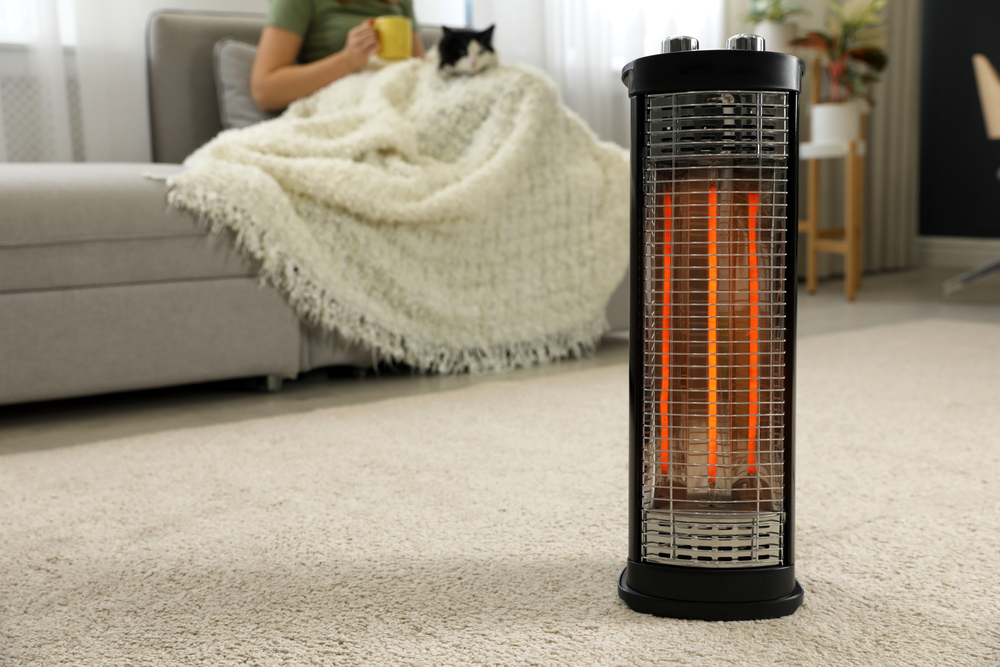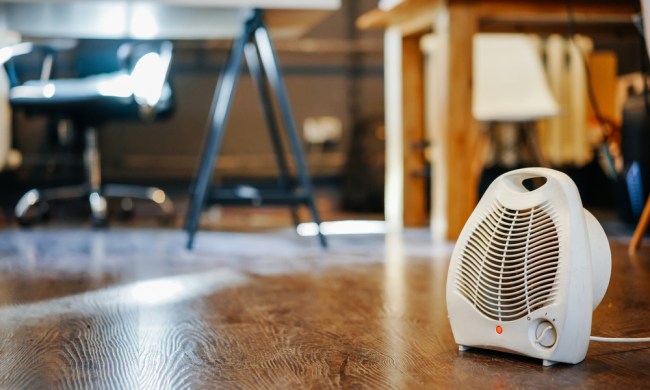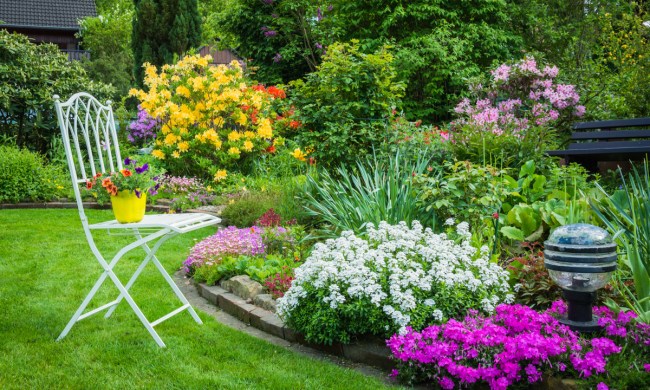When you’re feeling a bit of a chill, there’s nothing quite like the warmth of a space heater close by. While your home’s integrated heating system generally covers temperature control throughout the home, you may find that some especially drafty spaces need a boost of warmth. Maybe your basement needs to be more comfortable or your home office gets chilly. Often, space heaters are the solution to your electricity bill woes, as you can save some cash by turning down your home’s overall heat and focusing on warming just one or two rooms.
While a space heater can be a useful gadget for any of these purposes, it isn’t without its risks. Before plugging yours in, review some of the benefits and risks of space heaters, so you can stay both safe and cozy.

Benefits of a space heater
While the benefit of warming your toes under your desk may be enough to sell you on a space heater, these devices actually provide even more benefits since they are both efficient and convenient sources of heat.
Can lower your heating bill
If you’re only using one room in your home for a large portion of the day, you don’t want to spend a fortune keeping the whole house at a comfortable 72 degrees, right? Lowering your thermostat and using a space heater for quick and direct heating can save you some cash on your home’s overall energy costs. This is particularly beneficial if you work from home since you can heat your home office directly from 9-5 without breaking the bank.
Portable heating source
One of the best things about space heaters is their mobility. Many models are lightweight and can plug into standard electric outlets as a power source so you can bring the heat with you as you move around the house.
Risks an electric room heater poses
Keeping your home and family safe is your first priority, so be sure to address these risks and prevent bodily harm or property damage in your home.
Fire risk
Space heaters are one of the leading causes of house fires. Because space heaters aren’t an open flame, many people don’t think twice about plugging one in next to flammable materials like curtains or atop an uneven surface. Additionally, improperly installed heaters can also lead to a fire if the outlet becomes overworked. For that reason, always plug space heaters directly into a wall outlet instead of an extension cord or power strip. The amount of power required to operate a space heater could short circuit the extension device and create sparks.
Burning risk
Since they’re a heating source, space heaters have components that can become really hot to the touch. Small children and curious pets may accidentally burn themselves if they get too close and touch the machine.
Tripping hazard
Since they come equipped with power cords, space heaters can easily create a tripping hazard, particularly if they are placed in the middle of the room. To keep everyone right side up, run cords along the wall of tape them down to the floor to reduce the tripping hazard.

Features of a great space heater
All of those risks are pretty intimidating, but luckily many space heater models come with features that address these possible hazards head-on.
Safety features
High-quality machines often feature cool-touch materials so they won’t burn the user if they get too close. Automatic shut-off is another necessary feature, powering down the machine when the unit tips over or the internal temperature poses a fire risk.
Large heating capacity
The size and heating capability of your space heater depends on the size of the space you need to heat. Some models can heat an entire room quickly and efficiently with their high heating capacity so you don’t need to plug in multiple units in one room.
Eco modes
Any space heater can save you money by reducing the output of your HVAC system, but some energy-efficient models can cut down on your electricity bill even further. Many are equipped with timers for those times you forget to turn off the machine manually, and others have energy-saving modes that kick in when the room’s temperature reaches a comfortable level.
Quiet operation
You don’t want to be annoyed by the blowing or humming of your space heater, so look for a model that offers quiet operation. These tend to be units that use radiant heat instead of fan operation.
While space heaters have their risks and downfalls, many newer models have safety measures and convenient features that reduce some of those negatives, all while giving you the energy-efficient warmth you need. With the right heater on hand to warm up your space, you can be warm, cozy, and safe this season.



